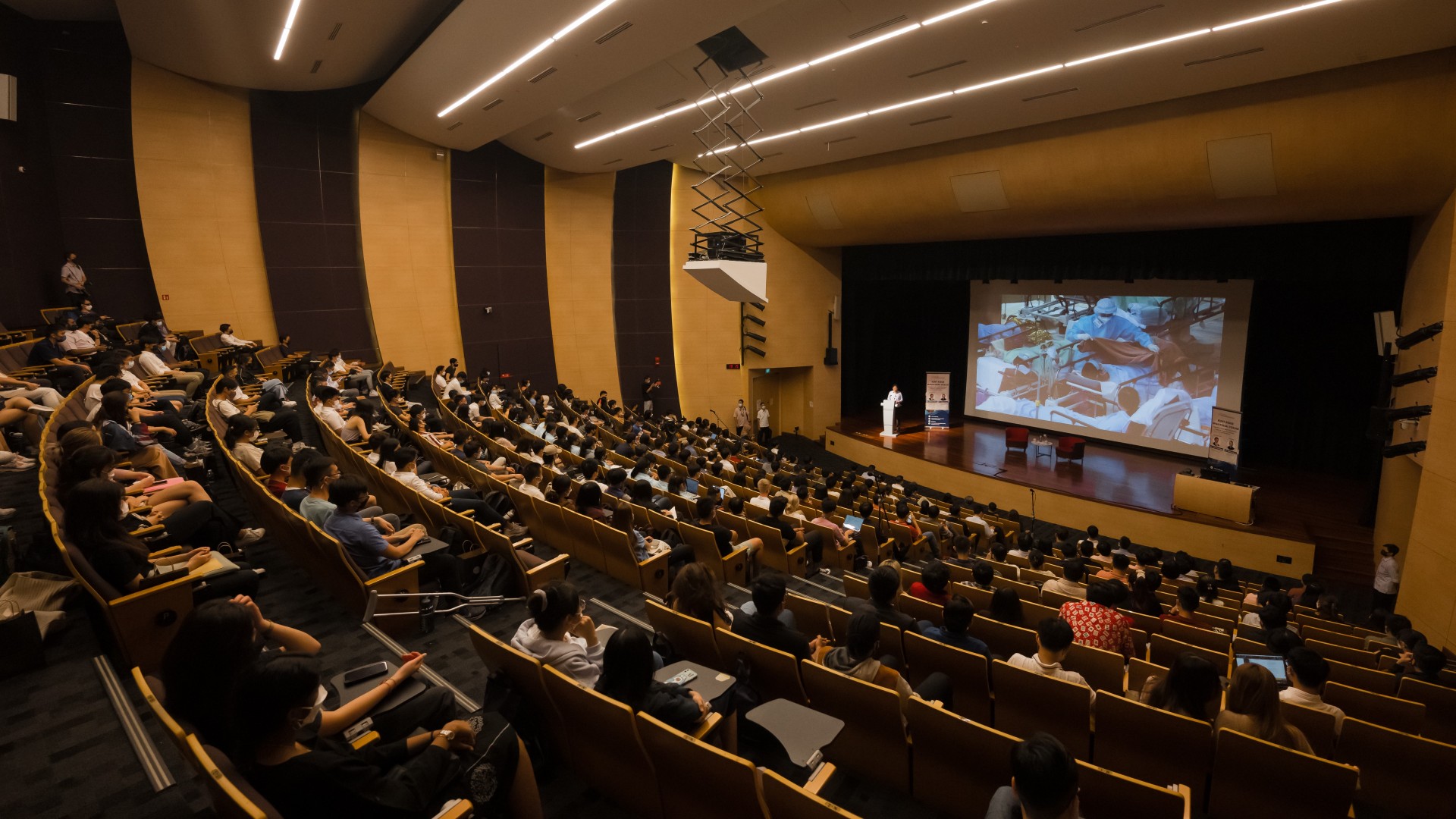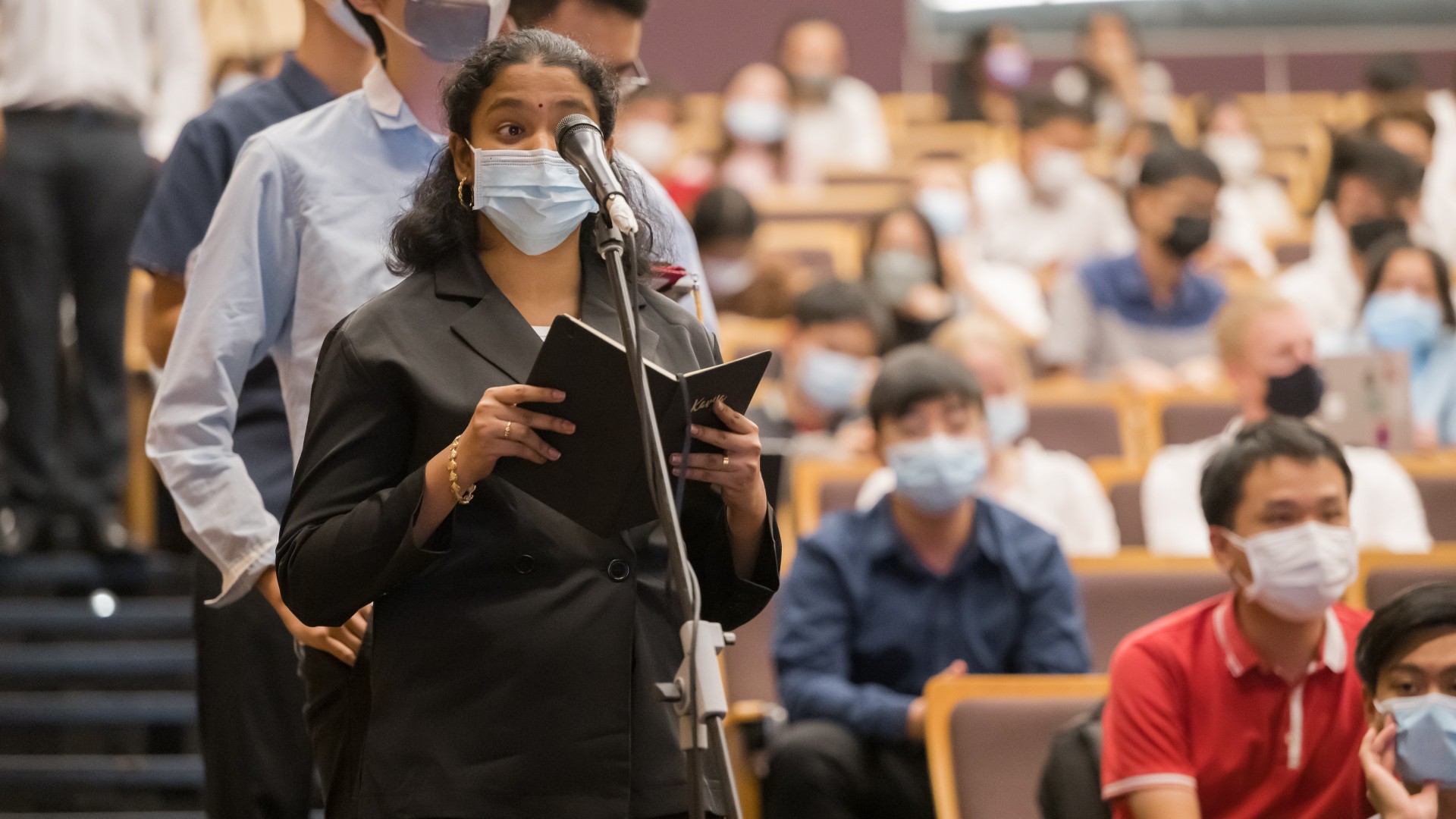Kent Ridge Ministerial Forum 2022: Be fearless and brave in shaping a better tomorrow
1989 witnessed the fall of the Berlin Wall – the start of the end of the Cold War between the United States and the Soviet Union. A young Lawrence Wong was in junior college then, and did not quite grasp the consequences.
“We just knew it was something significant. It brought about peace, stability, globalisation. For 30 years, it benefited countries everywhere,” said Mr Wong, who is now Deputy Prime Minister and Finance Minister, at the annual Kent Ridge Ministerial Forum on 26 August 2022 organised by the National University of Singapore Students’ Political Association.
Today, the leader of Singapore’s fourth-generation team noted that the world is witnessing another turning point with the COVID-19 pandemic as well as Russia’s invasion of Ukraine, which is fundamentally changing the global order, impacting the relationship between the United States and China. All these have impacted energy prices, food supplies, and geopolitical order.
The risk of rising tensions is the possibility of war – not intentionally but because of accidents or miscalculations. “If you look at history, that is how wars start. People do not intentionally go into war, they sleepwalk into war,” he reiterated.
“We can only count on ourselves”
While shifts of such global scale can be daunting, Singapore has time and again demonstrated resilience in weathering challenges in its 57 years of existence, said Mr Wong.
“We have always been a little red dot. We have always had to recognise that, as a small little island with no natural resources of our own, we can only count on ourselves, our wits, our ingenuity, and our own people to survive and to make a good living,” he explained.
Mr Zou Yinan, Director of the Kent Ridge Ministerial Forum also alluded to this in his introductory address, on Singapore’s approach towards a resilient society – the theme of the forum. “Resilience could mean many things within our society, be it COVID-19 resilience, climate resilience, supply chain resilience and many more. It is apt to have discussions surrounding such a theme as Singapore is going through rapid and constant changes,” he said.
Despite the uncertainties, Mr Wong identified two major growth areas. The first is the digital economy, a major growth area not just in the US, but also in Southeast Asia, creating new jobs. The second is the green economy, a development which has seen countries starting to think about how they could get to net zero, by restructuring their economies, which would impact sectors like transport, energy, food and finance.
Referring to digitalisation and sustainability as two powerful trends that will continue to transform the region, Mr Wong said, “This will present new opportunities for Singapore because our value proposition is (being) a hub for the region and the world.”
The Republic, in fact, has plans to redouble efforts to become a more attractive and more innovative hub. The vision is for companies and talent to be based in Singapore and use the city “as a control tower or a hub to do business in Southeast Asia and Asia”.
“This is how we can ensure there will always be good opportunities, good career prospects, here for Singaporeans like yourselves when you graduate,” Mr Wong told 350 undergraduates and participants at the Forum, which was also attended by NUS President Professor Tan Eng Chye, Dean of Students Associate Professor Ho Han Kiat, University Librarian Dr Natalie Pang, and Deputy Dean of Students Associate Professor Adeline Seow.

What is important, however, is that young people must be open-minded, prepared to venture out and find out more about the country’s neighbours.
“Very often, students would like to do exchange programmes; and when they want to spend time overseas, the immediate thought is to go to the United States and Europe,” noted Mr Wong. “By all means, spend time in America and Europe, but do not neglect our own backyard.”
This includes China and India, the two giants in Asia. By knowing the region well, “we can offer a real value proposition to businesses when we talk about Singapore being a hub”, he added.
“Be fearless and brave”
After outlining the challenges and opportunities in this new world, his rallying call to his audience of youth was simple yet strong.
“All of us here in this room have inherited a Singapore from our forefathers that is really quite precious. A Singapore that is stable, prosperous and united. We should cherish that and we should never take that for granted,” he urged. “Instead, it is our collective responsibility to see how we can improve it and make it better. So, let us be fearless and brave in shaping a better tomorrow and let us all do our part to write the next chapter of the Singapore Story together.”
The audience responded eagerly with questions during the dialogue with Mr Wong that was moderated by Associate Professor Adeline Seow. For almost two hours, students from a variety of tertiary institutions stood in line and waited patiently to seek answers from the leader who is expected to succeed as Singapore’s next Prime Minister.
Among the issues discussed were the prospects of Singapore’s economic growth amid competition from regional neighbours, the spectre of climate change, increasing cost of living, Singapore’s new university of the arts and global geopolitical tensions.
The event drew to a close with the minister whipping out a selfie stick to take a “we-fie” with the auditorium of young participants, in the same way the forum had given a snapshot of Singapore’s future.
Read Mr Wong’s address here.





